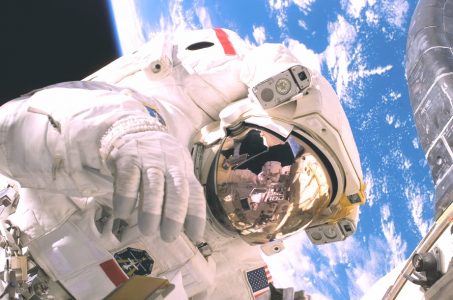Astronauts Heading to Mars Face Chronic Dementia Risk - Dispatch Weekly
October 10, 2016 - Reading time: 3 minutes

A new University of California, UCI study published in Nature’s Scientific Reports, questions the long-term brain health of astronauts after long spaceflights, who may be in danger of developing “space brain,” or forgetfulness.
The Study
The study led by Charles Limoli and colleagues found that exposure to highly energetic charged particles-like those found in the galactic cosmic rays that will bombard astronauts during long spaceflights, caused significant long-term brain damage in test rodents. This resulted in cognitive impairments and dementia.
Their study shows shorter-term brain effects of galactic cosmic rays. Rats were subjected to charged particle irradiation at the NASA Space Radiation Laboratory at New York’s Brookhaven national Laboratory and then sent to the UCI lab.
Unique Hazards to Astronauts
Limoli said:
“This is not positive news for astronauts deployed on a two-to-three-year round trip to Mars.”
“The space environment poses unique hazards to astronauts. Exposure to these particles can lead to a range of potential central nervous system complications that can occur during and persist long after actual space travel.”
These included: “various performance decrements, memory deficits, anxiety, depression and impaired decision-making. Many of these adverse consequences to cognition may continue and progress throughout life.”
Damage to the Brain
After being exposed for six months the rodents had significant levels of brain inflammation and damage to their neurons.
The brain neural networks showed:
- Impairment through the reduction of dendrites and spines on the neurons
- A disruption of the transmission of signals among brain cells.
- Poor performance on behavioral tasks designed to test learning and memory.
- Radiation affected “fear extinction,” an active process in which the brain suppresses prior unpleasant and stressful associations
Limoli said, “Deficits in fear extinction could make you prone to anxiety.” This “could become problematic over the course of a three-year trip to and from Mars.”
Dementia, NASA and Mars Mission
Dementia in astronauts would take months to develop but Limoli said the mission to Mars would be a sufficient amount of time for such symptoms to occur.
The study is part of NASA’s Human Research Program, which examines how space radiation affects astronauts and takes these findings to prevent these effects. The conclusions are sent to NASA who considers these risks when planning to launch to Mars.

DW Staff
David Lintott is the Editor-in-Chief, leading our team of talented freelance journalists. He specializes in covering culture, sport, and society. Originally from the decaying seaside town of Eastbourne, he attributes his insightful world-weariness to his roots in this unique setting.




